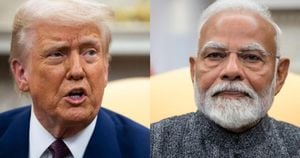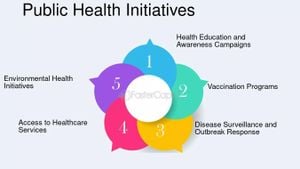The countdown to the 2025 German Federal Election has begun, with approximately 60 million people set to exercise their democratic rights on February 23, 2025. Among them, around 203,000 eligible voters from Karlsruhe will cast their ballots to determine their representatives, highlighting the decentralized yet organized electoral framework of the nation.
Leading the charge for this monumental task is the Federal Returning Officer, who serves as the head of the Federal Statistical Office and collaborates with state election officials to address legal and organizational questions. The federal structure of Germany is reflected by the clear hierarchy among election bodies, ensuring efficient administration of the electoral process.
The political battleground is heating up, with about 29 parties contending for approximately 630 Bundestag mandates, though not all will compete across every federal state. According to Christa Dieckmann, the Landeswahlleiterin of Saxony-Anhalt, "Democracy needs voters," emphasizing the importance of civic engagement as citizens prepare to head to the polls.
Election day promises to be busy, as local authorities prepare the logistics for the voting process, which will feature open polling stations from 8 AM to 6 PM. With over 600,000 volunteers recruited to support the election process, including about 2,000 from Karlsruhe alone, managing the flow of voters will be key to ensuring efficiency and order at polling places.
Each voter will have two votes: the first for their constituency representative and the second for their preferred party, which will determine the overall seat allocation. Voter education becomes fundamentally important with guidelines on how to mark the ballots properly to avoid invalid votes. Notable candidates vying for votes include Tobias Bunk (CDU), Parsa Marvi (SPD), and Dr. Zoe Mayer (Greens), among others, showcasing the diverse political options available.
Increasingly, voters are turning to alternative methods of voting, including mail-in ballots. This year’s election poses unique challenges as the timeline for obtaining and casting ballots has been significantly shortened due to the call for early elections, reducing the period for mail-in voting from the usual six weeks to only two.
According to local authorities, over 74,000 residents have already requested mail-in ballots, but potential delays with postal service delivery have created a sense of urgency. Voters must return their ballots by 6 PM on election day, or their votes will not be counted. Therefore, local election officials recommend applying for mail-in ballots directly at community offices to avoid postal delays.
Election officials across regions are cognizant of the growing trend among voters to opt for mail-in ballots due to convenience, but they also fear this could lead to increased numbers of late-submitted ballots as voter education and awareness campaigns intensify leading up to the election.
The sociopolitical conditions surrounding this election have become increasingly fraught, particularly following the collapse of the previous coalition government, resulting in heightened anxiety over voter turnout and preferences. Polling organizations, including research initiated by Mannheim University, have raised concerns over uncertainty reflected in the polls where the actual campaigning dynamics can vary wildly.
Thomas Gschwend from the Mannheim research team mentioned, "We aim to convey how uncertain information from polls can be," showcasing discrepancies between initial survey results and potential outcomes. With varying estimates for party support, for example, the CDU stands between 24-34 percent, and the AfD’s range fluctuates between 16-24 percent, demonstrating the unpredictable nature of the upcoming vote.
The mood among potential voters is reflective of the broader national hope and uncertainty. Citizens often wonder whether historical voting patterns will continue or if new alliances could reshape the political spectrum. Conversations around high-stakes issues such as immigration, social policies, and climate change dominate discussions as parties campaign vigorously.
Notably, as parties combat to achieve or exceed the 5 percent threshold required for representation, several smaller parties seek to navigate this treacherous electoral terrain carefully. For example, attention is drawn to the FDP (Free Democrats) and the potential impacts of their inability to cross this boundary.
The organizational and logistical challenges underpinning the 2025 election reflect the complexity of administering democracy within Germany's federal construct. Election officials are tasked with ensuring their systems communicate effectively, especially as local, state, and federal levels interact more than ever to navigate through electoral hurdles and maintain the integrity of the democratic process.
The orchestration of events surrounding this election serves as both a challenge and opportunity for Germany’s political future. With significant attention now directed at voter mobilization, every eligible citizen is called upon to engage meaningfully. Whether through physical attendance at polling booths, participation via mail-in ballots, or seeking additional information through tools like Wahl-O-Mat - the importance of each vote cannot be overstated.
On February 23, all eyes will be on Germany as it enters another chapter of its democratic process, where each ballot cast will not only decide representation but also influence the country’s future direction.



